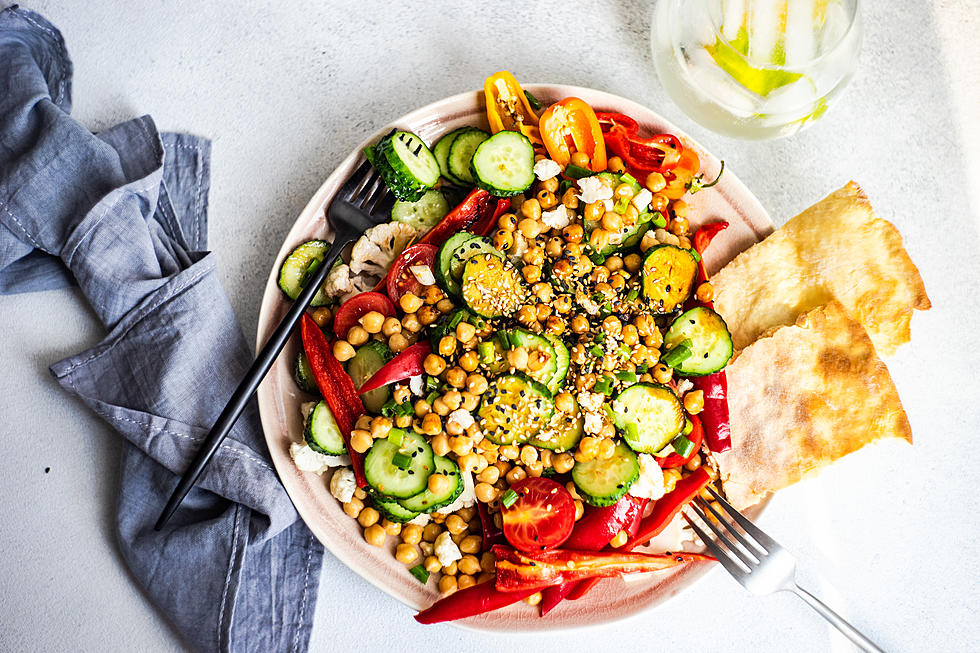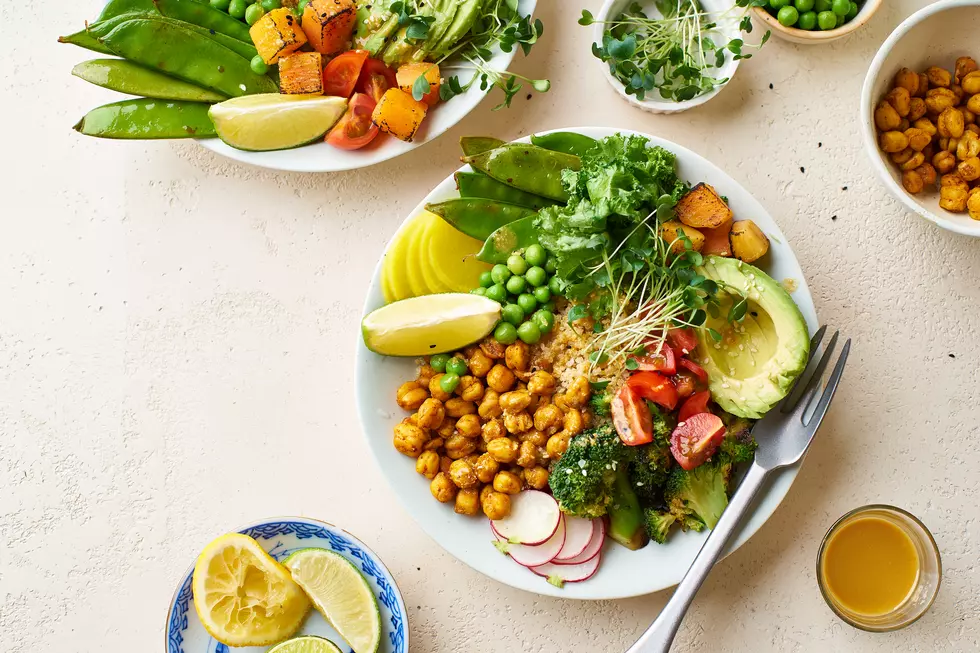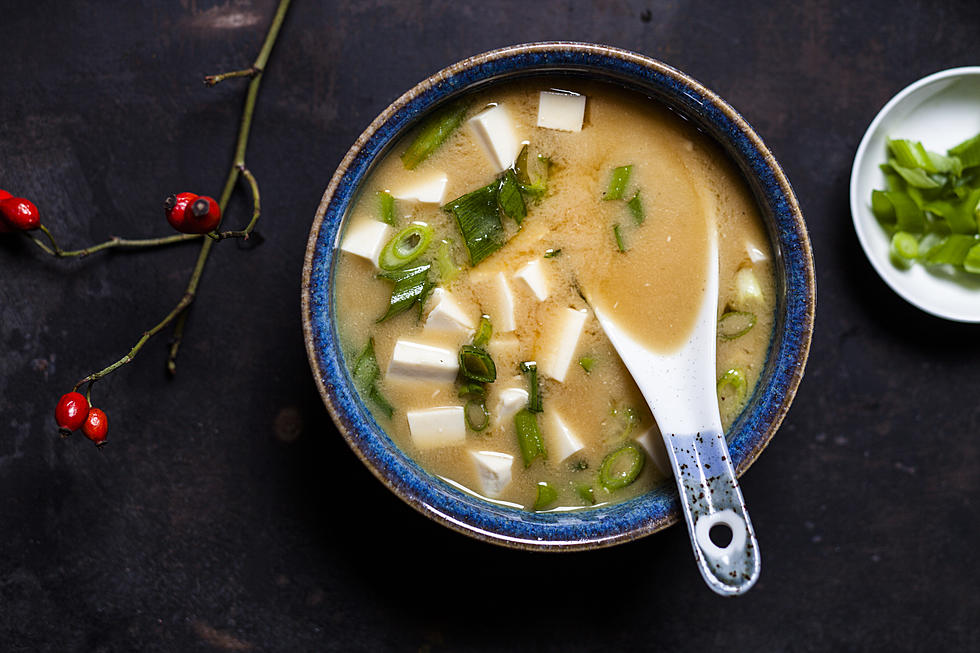
Everything You Need to Know About Weight Loss on a Plant-Based Diet
With 60 percent of Americans wanting to get healthier and 51 percent aiming to lose weight this year, according to a survey, the question is: Which diet is best to both lose weight and get healthy? When considering foods that help you lose weight, science now tells us a plant-based diet works best for weight loss compared to other diets, including the heart-healthy Mediterranean diet. Studies show that eating a whole food plant-based diet is more effective than even a keto diet for losing weight and keeping it off. And eating a plant-based diet has been proven to reduce your risk of heart disease, type 2 diabetes and certain cancers.
Switching to a plant-based approach is easy since it focuses on high fiber foods like vegetables, fruits, whole grains, nuts, and seeds while avoiding processed foods and animal products. Eating plant-based is a proven way to lose weight and keep it off. Studies show that a plant-based diet is more effective for weight loss than the Mediterranean diet and most other popular diets since eating foods high in fiber h been shown to promote weight loss
"A low-fat vegan diet improved body weight, lipid concentrations, and insulin sensitivity... compared with a Mediterranean diet," the study concluded. Plant-based diets have also been shown to help people lose weight more effectively than a keto diet, which has been linked to nutrient deficiencies, unhealthy levels of cholesterol, kidney stones, and other side effects.
Healthy and natural weight loss results are just one of the many reasons why plant-based diets are so popular, and more nutritionists and doctors stand by this way of eating. The diet contains an abundance of foods that help you lose weight like vegetables, fruits, legumes and beans, seeds, and nuts, and steers clear of highly processed, inflammatory foods like meats, cheese, and dairy that have been linked to diseases, including certain cancers.
A plant-based diet for weight loss is easier than it seems: You can still enjoy all the same foods you love other than meat and dairy, and it's easy to get creative by adding plant-based ingredients to salads and soups, oatmeal, or stir fry. Or trade up to healthy ingredients that make your meals even more delicious like swapping out cheese for a Brazil nut parmesan cheese shaved over a Caesar salad. For more ideas, check out the nutritionist-approved plant-based recipes for weight loss ranging from easy-to-make breakfast to desserts your whole family will love (see below).
How to lose weight in a plant-based diet: Tips from experts
Eat more fiber
Health experts wish Americans would care more about their fiber intake rather than their protein obsession. One study in the Journal of Nutrition found that among adults trying to lose weight on calorie-restricting diets, it was their fiber intake that predicted who lost the most weight. "Dietary fiber intake, independently of macronutrient and caloric intake, promotes weight loss and dietary adherence in adults with overweight or obesity consuming a calorie-restricted diet," the study concluded.
The other fact about fiber is that dieters who eat more fiber foods are likelier to adhere to their diets, since high-fiber foods are also more filling, keeping hunger at bay, and also help shift the gut microbiome to be healthier which slows down the absorption of calories, so your body does not experience the sugar spikes and insulin surges that lead to weight gain and fat storage. In short, eating more vegetables helps you stay on track, so choose fiber foods over other foods when dieting.
Note that fiber only exists in plant foods – vegetables, fruit, nuts, seeds, and whole grains – since animal products such as meat and dairy do not contain it. So a plant-based diet that is high in fiber foods and low in processed foods (where the fiber is largely broken down or destroyed) is best for weight loss.
Prioritize fiber foods over protein
Prioritizing fiber foods is in stark contrast to the obsession that most Americans have with protein, which has not been shown to help promote weight loss, according to the research. One protein study found that long-term consumption of high protein is associated with "disorders of bone and calcium homeostasis, disorders of renal function, increased cancer risk, disorders of liver function, and precipitated progression of coronary artery disease." How much protein do you need? The answer may surprise you: It's 8 grams per kilogram (g/kg) of body weight. Some experts, however, recommend slightly higher amounts for plant-based eaters or fitness enthusiasts who may also need closer to 1.2 to 1.4 g/kg of body weight.
But loading up on protein to lose weight is not a smart strategy, since too much protein simply gets translated into energy or calories that, if your body is already topped off for its protein needs, meaning your liver and muscles are fully refueled, the extra gets stored as fat. On the other hand, prioritizing fiber is a smarter choice: Fiber is critical for regulating a healthy gut microbiome which is "essential for just about everything," according to Cynthia Sass, M.P.H., R.D., C.S.S.D., virtual private practice plant-based performance nutritionist.
Unfortunately, most Americans don't get enough daily fiber. More than 90 percent of Americans are not getting their recommended fiber intake, which is a minimum of 24 grams for women and 35 grams for men, though more is better. The average American consumes only 15 grams a day, according to a study in the American Journal of Lifestyle Medicine.
Research has shown that getting at least 30 grams of fiber a day is enough to aid in weight loss and can make it easier to achieve than complicated diets. How to do that? Simply eat more of the 20 best foods that are high in fiber, your diet's unsung hero.
Fiber also shifts the gut microbiome to be healthier, which can positively impact overall health and disease prevention, so eating plant-based helps lower the risk of heart disease and every major lifestyle disease, according to experts. "The microbiome is like the foundation of a home and supports overall wellbeing: It controls our moods, protects against inflammation, and helps boost immunity," according to Dr. Kien Vuu, who specializes in human optimation and regenerative medicine, the secret to longevity. Vuu believes a healthy microbiome is one answer to living a longer, stress-free, purpose-driven life.
Drink more water
Another known way to help the body lose weight naturally is to stay hydrated since being hydrated helps your metabolism and your cells function optimally. Most Americans get nowhere near the amount of water they need and may mistake being thirsty for hunger.
Drinking no less than 64 ounces of water a day is optimal, studies have suggested, to boost metabolism and keep energy levels high. In a study published by The Journal of Clinical Endocrinology & Metabolism, of 14 healthy, normal-weight participants (seven men and seven women), results found that the subjects who drank 500 ml (or 16 ounces) of water increased their metabolic rate by 30 percent within just 10 minutes of drinking, and reached its highest rate of energy production 30 to 40 minutes after drinking.
Keep a pitcher of water on your desk or a water bottle within reach at all times. If sipping is something that slips your mind, set an alert on your phone, or make yourself drink a full class every hour. Staying hydrated in cold weather is equally important since you may not know that you're dehydrated, according to experts.
If you prefer to eat your water load up on fruit since most of it contains a high water content, which can help you get to your hydration levels and carries loads of healthy antioxidants to boost immunity and keep you healthy, which is also key to long-term weight loss since when you're sick it's hard to get to the gym or have the energy for a workout.
For best results, studies have shown that drinking warm or hot water in the morning is best to wake up the digestive system, and hot water with lemon has become a regular ritual for people who want to add vitamin C to boost immunity. The lemon juice is high in vitamin C, with 30.7 milligrams of C in one lemon, which is nearly half of the daily recommended amount for a woman (75 milligrams) and one-third of the amount men should get (90 milligrams).
If you stay hydrated, eat healthy, and exercise, the practice of drinking enough water can support your weight loss by boosting your metabolism and increasing satiety. In a study of 24 overweight men,12 were given 500-mL of room temperature water thirty minutes before their meal, and the other 12 ate without drinking water first. Energy intake at each meal was measured and results explained that the men who drank the water increased their energy intake, ultimately burning more calories.
Lower insulin resistance
More than 100 million Americans are living with insulin resistance, and may not know it. Insulin resistance is related to prediabetes or diabetes and can lead to these more serious conditions. When you are insulin resistant, your cells "resist" the signal insulin sends to uptake sugar from the blood to be used as fuel, so your body produces yet more insulin, to make the signal louder, and as cells don't use the energy it gets stored as fat, which makes it that much harder to lose weight.
"Think of insulin as a key and your cells as a lock on the house. The glucose is the people going into the house. When insulin resistance occurs, the key is not working well with the lock. This causes the people outside the house to 'build up' – or the sugar in the blood to increase," explained Nicole Osinga RD. Since your blood can't contain more than the equivalent of one tablespoon of sugar at a time, all that extra glucose gets stored.
The foods we eat have an impact on insulin resistance, and can actually prevent it: Try to eat more whole food sources of fats like avocado, nuts, seeds, and olive oil do not trigger a spike in blood sugar. Stay away from saturated and trans fats like chips and butter which can cause inflammation. In addition, aiming to eat more foods with a low glycemic index helps normalize blood sugar and controls cravings for unhealthy foods. "Low GI foods include berries, apples, spinach, beans, quinoa, and oats," according to Osinga.
The goal is to keep blood sugar steady and avoid insulin spikes. One recent study found that eating a leafy green salad with a meal can help lower the body's blood sugar response to the other food you ate. Complex carbohydrates slow down absorption so blood sugar stays steady. The research shows that even when you eat carbs as part of a meal, you can prevent blood sugar spikes, just by adding salad greens to your plate.
Try carb cycling (and eat more carbs!)
It's counter-intuitive that carbs can help you lose weight but the carbs you eat on a whole food plant-based diet are high in fiber and in the case of legumes, also high in protein. That means it's healthy to eat lentils and other legumes as well as whole grains, and other complex carbs that take longer to break down. Boiled potatoes have a high glycemic index so while they are healthy as part of an overall plant-based diet and help you feel full, you may want to limit them.
One of the newest diets nutritionists recommend for anyone who wants to lose weight without calorie restriction is called "carb cycling" which requires eating complex carbs for two days and limiting your carb intake for another two days. This combination helps manage your insulin response, which means you burn fat faster.
However, before you start carb cycling be aware of which carbs are healthiest: Beans and legumes, vegetables, fruits, and whole grains. When limiting carbs you can still have lentil soup, boiled potatoes, grain bowls consisting of whole grains lie quinoa, and your favorite vegetable platter. Carb cycling is one strategy that works well for a plant-based approach.
Foods that help you lose weight
The healthiest way to sustain weight loss is to eat more nutrient-dense vegetables and fruits that are high in fiber and will leave you feeling fuller longer, or have a special compound that helps burn fat, like chili peppers.
Even some foods that are high in calories, like avocados, are weight-loss friendly because they fill you up and keep your blood sugar low by keeping insulin at near-fasting levels. Meanwhile, sea moss has been shown to help boost immunity and contains iodine that is helpful to your body's metabolism so add it to smoothies or other foods.
If for any reason you find that you're not losing weight on a plant-based diet, make sure you avoid processed foods or added sugars and eat whole plant-based foods instead.
Here are eight weight-loss-friendly and nutritionist-approved foods to add to your smoothie or menu, as well as helpful recipes to make eating a plant-based diet even easier.
- Avocados for healthy fat
- Leafy greens (kale, spinach, arugula)
- Beans and legumes
- Chili peppers and other spices
- Chia seeds and other seeds
- Grapefruit and all citrus fruit
- Cruciferous Vegetables
- Sea moss for iodine
Best plant-based recipes for weight loss
Breakfasts
- Chocolate Mocha Chia Pudding
- Classic Avocado Toast with a Spicy Kick
- Supergreens Smoothie
- Banana and Almond Butter Toast Sprinkled with Cinnamon
- Chickpea Omelet With Chives
Lunch & Dinner
- Autumn Pear Salad with Maple Mustard Vinaigrette
- Loaded Vegetable and Chickpea Curry
- Homemade Vegan Pumpkin Ricotta Tortelloni
- Vegan Jackfruit Enchiladas with Queso Fresco
- Spicy Whole-Roasted Cauliflower
Desserts
- Apple Cinnamon Granola
- Avocado Chocolate Pudding
- Sweet Potato Spiced Granola
- Black and White Nice Cream with Pecan Crumble
- Dark Chocolate Avocado Mousse
Snacks
- Classic Bliss Balls
- Roasted Beetroot Dip with Za'atar
- Healthy Coconut Cookies
- Mock Tuna Salad
- Homemade Salsa with Fresh Mint and Lime
Bottom Line: Eat more plant-based foods for healthy weight loss
Eating high-fiber foods that are filling is the key to healthy weight loss, more than following a specific diet. Focus on vegetables, fruit, legumes, nuts, seeds, and whole grains, and stay away from highly processed foods and animal products for weight loss that is sustainable.
More From The Beet









